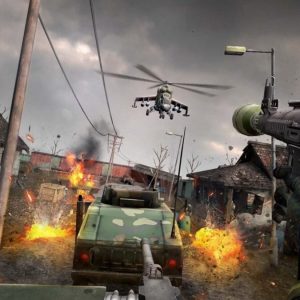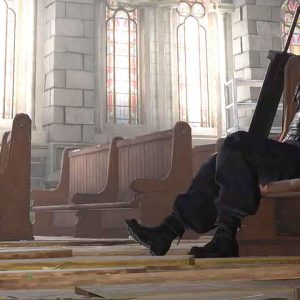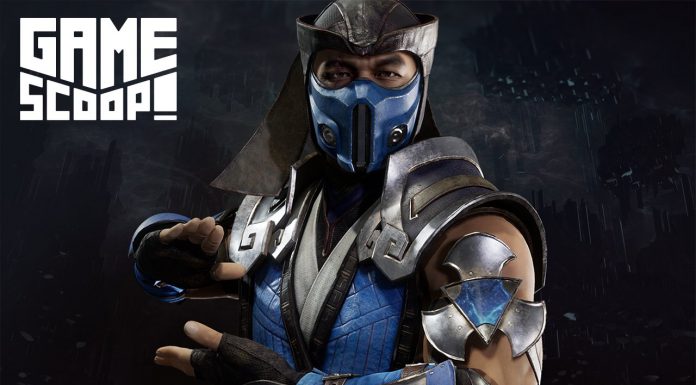Telltale Games Is Back, Sort Of
This morning, it was reported by Polygon that Malibu-based game company, LCG Entertainment, purchased Telltale Games and its assets for an undisclosed amount. The new heads of Telltale Games are Jamie Ottilie and Brian Waddle, game industry veterans with no prior history at Telltale Games.
Speaking with Polygon, Ottilie said that the new Telltale will sell some of the company’s back catalogue and “work on new games based on a few Telltale-associated properties.” Ottilie says that some original Telltale employees will be offered freelance roles, with a potential to turn full-time.
IGN has learned that the new Telltale has contracted some former employees from production management and release support. However, two sources familiar with Telltale also said that no creatives or game designers have returned to Telltale Games at this time.
What Can New Telltale Do?
A former manager at Telltale, who wished to remain anonymous, revealed to IGN that Ottilie and LCG Entertainment purchased the rights to Telltale this past spring. “It was a yard sale – Jamie picked up the Warner IP and brand name. [The new entity] could now [legally] reactivate the licenses with the IP holders’ blessing.”
However, IGN has learned that certain licenses previously held by Telltale have reverted back to the original IP owners. “Minecraft went to Microsoft, Marvel went back to Marvel, [The Walking Dead] went to Skybound,” the source familiar with the matter said.
“
However, WB licenses like The Batman and The Wolf Among Us, and original Telltale IP like Puzzle Agent, can be reactivated by new Telltale. Our aforementioned source says that WB likely “blessed” Batman and The Wolf Among Us for the sale to go through to LCG Entertainment. So, at the very least, we know that new Telltale can work on those IPs.
What Games Will Telltale Make?
Although Telltale retains the rights to its original games, as well as some licenses like those from WB, Telltale Games won’t be able to develop new games for licenses it lost since the company’s closure in 2018. That means no Minecraft, Marvel, or most importantly, The Walking Dead, which helped catapult the company to success in the first place.
Former Telltale developers are also uncertain as to whether this new Telltale will ever be like the one that delivered the critically-acclaimed narrative adventure games the developer established a reputation around.
“I think it’s great if this means the games are made available again and even better if this means people who were affected by the layoffs can find work gain, as some still haven’t,” former Telltale developer Ryan Benno told IGN. “It definitely won’t be the Telltale that was there before the closure. It’s been too long now and a lot [of people] have moved on.”
“Telltale [Games] isn’t coming back… A company bought our assets. I am still working through the trauma of our company closing, and I am missing my friends every day,” former Telltale employee Caroline Liddick tweeted following the news of Telltale’s revival.
Why Did Telltale Games Shut Down?
Telltale Games was founded in 2004 where developers worked on point-and-click puzzle adventure games like the Sam & Max series. It wasn’t until 2011 when Telltale released an episodic narrative-adventure game for The Walking Dead.
The Walking Dead was a financial and critical success, selling over 28 million episodes as of July 2014, and winning numerous Game of the Year awards. However, Telltale was never able to reach the same peaks as they did with the first season of The Walking Dead.
Furthermore, crunch, creative meddling, and other structural problems at the development studio created a stressful work environment for many of the developers tasked with making new episodic game content, sometimes within weeks. In 2017, company co-founder Kevin Bruner stepped down from the company, and the company laid off 90 employees.
In 2018, Telltale Games announced a “majority studio closure.” 90% of the workforce were laid off, and a skeleton crew remained to complete work on Minecraft: Story Mode. While some games like The Walking Dead were saved, developers and employees who were laid off were reportedly given no warning or severance. Telltale’s former management is currently facing a class-action lawsuit over violating California labor laws.

For anyone expecting the same Telltale Games as the one that was shut down in 2018, that doesn’t appear to be the case. The new Telltale Games will be operating without key creative developers behind some of their best games, and the new Telltale doesn’t even have access to some of the more famous franchises it’s worked on.
Instead, it’s very possible the new owners are capitalizing on Telltale’s brand name. “There’s a belief that the brand name has value; research showed that the brand is almost a genre in itself,” the former Telltale manager revealed.
“The challenge going in was the company had lost $50 million in the previous two years,” IGN learned from our source. “15 [million] people watched Batman on YouTube – 250k bought it. So, if you have the time and desire to reverse that math, and you pick [Telltale] up for very low [price] it might be worth a shot.”
As it stands, this revival of Telltale Games is shaping up as less of a feel-good story, and more as another strange chapter in the increasingly twisted history of Telltale Games.
Matt Kim is a reporter for IGN. If you’re aware of the situation at Telltale Games reach out to [email protected] or on Twitter.






















